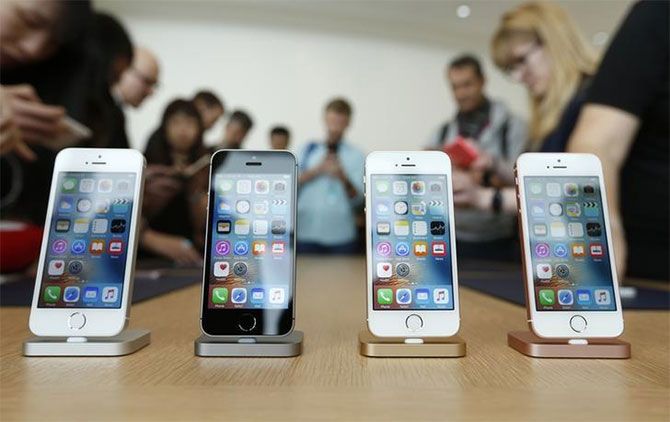Samsung's smartphone sales started to drop in the third quarter of 2016, and the decision to discontinue the Galaxy Note 7 slowed down sales of its smartphone portfolio in the fourth quarter.

Apple toppled Samsung as numero uno player in the global smartphone market with 17.9 per cent share in the December quarter, research firm Gartner said on Wednesday.
The October-December quarter of last year -- which clocked 7 per cent year-on-year growth in overall sales to 432 million units -- saw Samsung finish second with a market share of 17.8 per cent.
For 2016 overall, smartphone sales to end users totalled nearly 1.5 billion units, an increase of 5 per cent from 2015.
"This is the second consecutive quarter in which Samsung has delivered falling quarterly smartphone sales. Samsung's smartphone sales declined 8 per cent in the fourth quarter of 2016 and its share dropped by 2.9 percentage points year on year," Gartner Research Director Anshul Gupta said.
Samsung's smartphone sales started to drop in the third quarter of 2016, and the decision to discontinue the Galaxy Note 7 slowed down sales of its smartphone portfolio in the fourth quarter, he added.
"The withdrawal of the Galaxy Note 7 left a gap in its large-screen phone range," he said.
Besides, Samsung is also facing growing competition in the mid-tier and entry-level smartphone segments from Huawei, Oppo, BBK and Gionee, which all saw their sales growing.
According to Gartner, it has taken eight quarters for Apple to regain the No 1 global smartphone vendor ranking, but the positions of the two leaders have never been so close, with a difference of only 256,000 units.
"The last time Apple was in the leading position was in the fourth quarter of 2014, when its sales were driven by its first ever large-screen iPhone 6 and 6 Plus," Gupta said.
This time it achieved it thanks to strong sales of its flagship phones -- the iPhone 7 and iPhone 7 Plus. It also benefited from the weakened demand for Samsung's smartphones in mature markets such as North America and Western Europe, and in some mature markets in Asia such as Australia and South Korea.
Huawei, Oppo and BBK accounted for 9.5 per cent, 6.2 per cent and 6.2 per cent of smartphones sold to end users worldwide during the fourth quarter of 2016, respectively.
Photograph: Stephen Lam/Reuters






 © 2025
© 2025